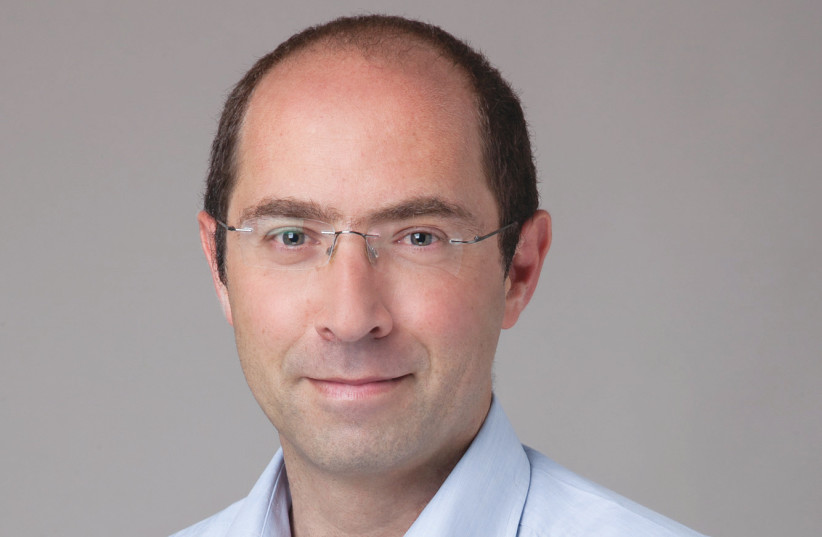This Italian man moved to Jerusalem to reduce Israel’s social tech gap
Astorre Modena moved to Israel in 2001 with a mission to make an impact. Today, 22 years later, his work is bridging the technology gap and changing the future of thousands of Israelis.
Born and raised in Milan, Italy, Modena was trained as a physicist, having completed a PhD at Imperial College, London, and his post-doc in plasma physics at Ecole Polytechnique in France. His goal in physics was to solve energy problems with fusion, something that disillusioned him due to the theoretical impact that may not even be seen in his lifetime. Wanting to make a more immediate effect on society, Modena decided to transition to the private sector, joining consulting firm McKinsey in Paris.
After a few years of working as a consultant, he decided to make the move to Israel. Having grown up in a deeply Zionist family and as a member of Bnei Akiva, Modena always felt that the impact he hoped to make should be in Israel.
Making aliyah and working to reduce the tech gap
Upon making aliyah to Jerusalem, where he chose to settle due to his attachment to the city that he considers “the most beautiful part of Israel,” with its “more traditional setting, great schooling system, and social build,” he found work as a principal at Israel Seed Partners, Jon Medved’s pioneering venture capital tech fund. It was there that Modena began his start to combine business and tech.
Around the same time, Modena volunteered in various organizations but continued to ponder ways in which to have a deep impact on the country. What he saw was a disconnect in the population in Jerusalem in terms of proficiency in technology. As a result, he founded Machshava Tova, today the leading nonprofit in the country working to reduce the technology social gap. The organization, now celebrating its 20th year, began in Jerusalem but quickly expanded to the rest of the country. Modena says its mission is to “empower social and geographic populations through technology.” Machshava Tova began by offering courses in basic tech skills, but today it has more than 50 courses across the technological spectrum. With over 100 employees, they have assisted more than 100,000 Israelis in tech skills.
 ASTORRE MODENA is a venture capitalist in Israel, with 25 companies currently in his investment portfolio. (credit: Troy Fritzhand)
ASTORRE MODENA is a venture capitalist in Israel, with 25 companies currently in his investment portfolio. (credit: Troy Fritzhand)The organization’s primary beneficiaries are youth lacking access to tech skills. Modena says that the organization has seen amazing results in metrics such as matriculation exams, IDF placement, and psychometric tests.
After the pandemic, Machshava Tova also began to cater to an older population. Initially, all the courses were offered out of its offices in Talpiot, but today most are run through partnerships in centers across the country. He says that the company is more software-focused in the sense that it provides all the courses and training but outsources the actual teaching to municipalities and nonprofits.
“They bring the kids, and we bring the teaching and coursework,” he says.
Today, Israeli children in more than 50 cities benefit from Machshava’s programming.
Outside of his nonprofit work, Modena is an active venture capitalist in the country, with 25 companies currently in his investment portfolio. Terra Venture Partners, which he set up in 2008 with two partners, was one of the first funds to focus on cleantech – technologies that work to improve the environment.
He notes the significant increase in awareness regarding the environment and climate change, which has led to an increase in the number of companies in that sphere. An early-stage fund, Terra also invests in companies that can make a digital impact in traditional industries and in digital information. However, thanks to the focus on climate, they are able to dedicate most of their resources to the climate. The firm is based in Jerusalem, which Modena believes has the potential to take on a more business-centered role in the country. His innovative and forward-looking work has enabled him to create an impact on Israelis born here and abroad, continuing the trend of olim (immigrants) contributing to the country’s future.
Outside of work and volunteering, Modena remains an active member of Jerusalem’s Italian-Jewish community, attending the well-known synagogue in the center of Jerusalem housed at the U. Nahon Museum of Italian Jewish Art. The interior of the scuola (shul) originally belonged to a 1719 synagogue in Conegliano Veneto, Italy, and was reassembled in Jerusalem after the Holocaust in 1952. ■
Astorre Modena From Milan, Italy, to Jerusalem, 2001





Comments are closed.